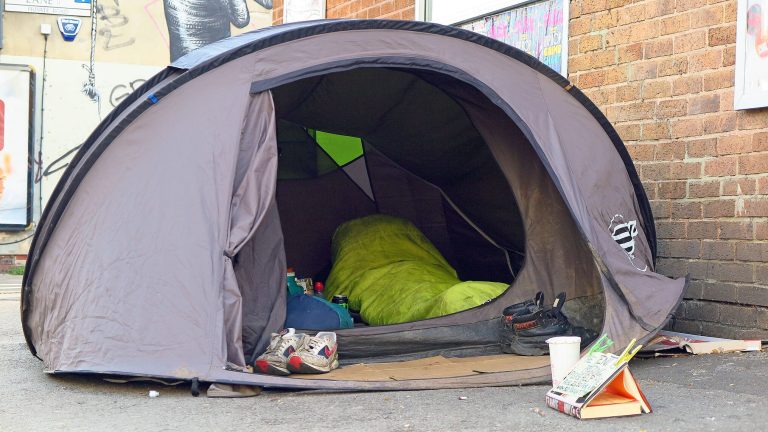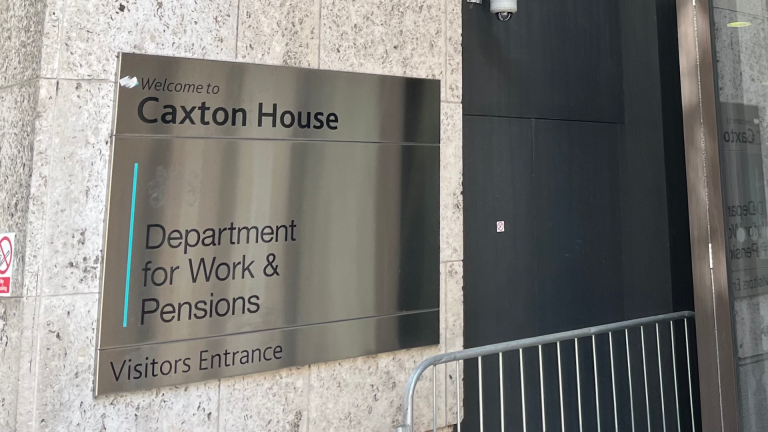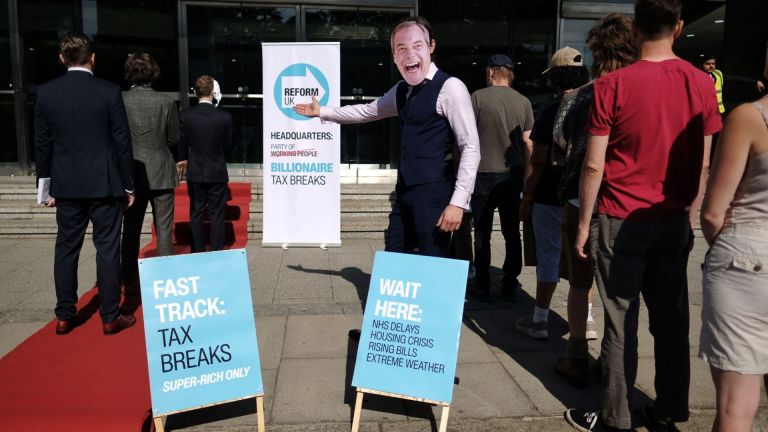The energy price cap doesn’t mean no one will pay more than £1,834 – this figure refers to the amount a household will pay based on average energy usage. If your household uses more energy than average, you may pay more.
“The price cap does not protect those who simply cannot afford the cost of keeping warm,” says Adam Scorer, the chief executive of National Energy Action. “That requires direct government intervention through bill support, social tariffs and energy efficiency.”
The government’s energy rebate scheme, a discount on household energy bills, ended in March. This had been a lifeline to many people, helping them save around £66 each month. The end of this support means people may not feel the positive impact of energy bills falling.
What government help is there to pay my energy bills in 2023?
How to get the winter fuel payment
You can get the winter fuel payment if you were born before 25 September, 1957.
Most winter fuel payments are made automatically in November or December.
It ranges between £250 and £600 depending on your circumstances, and this is all tax-free.
Advertising helps fund Big Issue’s mission to end poverty
This amount includes a pensioner cost of living payment, which is between £150 and £300. This is an additional sum for winter 2023/2024 to help pensioners pay for heating bills as the cost of living crisis continues.
You will get a letter telling you how much you will get and which account it will be paid into. Find out more here, including how to apply.
How to get the warm home discount
You could get £150 off your electricity bill for winter 2023 to 2024 with the warm home discount. This is a one-off discount applied to your electricity bill between early October and the end of March.
This is paid to people who get the guarantee element of pension credit, or those who are on a low income and have high energy costs. You’ll usually get the discount automatically if you’re eligible and based in England or Wales.
For people based in Scotland, you’ll get it automatically if you get the guarantee element of pension credit, but you might have to apply to your supplier if you are on a low income in Scotland. It is not available in Northern Ireland.
Find out more here.
Advertising helps fund Big Issue’s mission to end poverty
How to get the cold weather payment
You may get a cold weather payment if you’re getting certain benefits and the temperature drops to extremely cold levels. You’ll get a payment if the average temperature in your area is recorded as, or forecast to be, zero degrees celsius or below over seven consecutive days. You’ll get £25 for each seven-day period of very cold weather.
How to get the winter heating payment in Scotland
The winter heating payment has replaced the cold weather payment in Scotland. It helps people on low income benefits who might have extra heating needs. It’s automatically paid once a year.
Payments for winter 2023 to 2024 will begin from the middle of December. Social Security Scotland expects to pay the majority of eligible people by the end of January 2024. You’ll receive a letter from Social Security Scotland before they make the payment. Find out more here.
How to get the affordable warmth scheme in Northern Ireland
The affordable warmth scheme in Northern Ireland is paid to people who have an income of less than £23,000 a year. It is not available to people living in social housing.
To make an application to the Affordable Warmth Scheme, people can contact the NI Energy Advice Service by phoning 0800 111 44 55 or emailing NIenergyadvice@nihe.gov.uk
How to get the cost of living payment
The government is providing cost of living payments for vulnerable and low-income people. The second £300 cost of living payment for 2023 will be paid before 19 November. The following one will be paid in Spring 2024.
Advertising helps fund Big Issue’s mission to end poverty
People receiving certain benefits or tax credits are eligible for the cost of living payment. This includes: universal credit, income-based jobseeker’s allowance (JSA), income-related employment and support allowance (ESA), income support, pension credit, child tax credit and working tax credit.
How to get the Scottish welfare fund
The Scottish welfare fund offered in Scotland to provide a safety net for people on low incomes. These include crisis grants, which can help if you need emergency funds to pay for heating costs, and community care grants. Find out how to apply here.
How to get the discretionary assistance fund
In Wales, there is the discretionary assistance fund. This includes an emergency assistance grant, which helps cover essential costs, such as food, gas, electricity, clothing or emergency travel if you are experiencing extreme financial hardship, have lost your job or are waiting for your first benefits payment. You should apply through the Welsh government’s website.
How to get help from the finance support service in Northern Ireland
The finance support service supports people who live in Northern Ireland and need short-term financial help. This includes discretionary support to help towards short-term living expenses or household items. You can apply to the finance support service here.
How to get help from your energy supplier in the cost of living crisis
A number of energy suppliers offer grants to their customers to help them pay their energy bills. Contact your energy supplier if you are struggling and they may be able to help. We’ve listed a few grants available below:
British Gas Grants
British Gas grants are available to everyone who has a fuel debt of up to £1,500 and you don’t have to be a British Gas customer. This includes the Individual and Families Debt Write Off Fund.
Advertising helps fund Big Issue’s mission to end poverty
You’ll need to seek help from your local money advice centre first and be able to show that you’ve thought about how you will manage your costs in the future. You can apply for a grant and get advice from the British Gas Energy Trust through its website.
Scottish Power Hardship Fund
Scottish Power has a fund to help low-income households get their energy payments under control. It can help by clearing or reducing arrears by crediting a customer’s ScottishPower energy account.
EDF Customer Support Fund
EDF provides support for individuals struggling to manage household energy debt through their customer support fund. You can apply here.
E.ON Next Energy Fund
This fund could help you pay your current or final E.ON Next energy bills and potentially replace old appliances. You can apply on E.ON’s website.
Octopus Octo Assist Fund
If you’re an Octopus customer, you can access its financial support form on its website. It asks you a series of questions about your financial situation. The company offers a number of support options including access to existing schemes, monetary support from the Octo Assist Fund, or a loan of a thermal imagery camera to find heat leaks at home.
How to get charitable grants to pay your energy bills
People who are struggling financially may be eligible for charitable grants this winter. You can find out what grants might be available to you using Turn2Us’ grant search. There are a huge range of grants available for different people – including those who are bereaved, disabled, unemployed, redundant, ill, a carer, veteran, young person or old person.
Advertising helps fund Big Issue’s mission to end poverty
Grants are also usually available to people who have no recourse to public funds and cannot claim welfare benefits. Turn2Us helps people to access grants and support services if they’re in financial difficulty. If you contact them, they’ll check what’s available to you.
Glasspool gives small grants for things like white goods, beds, bedding, children’s clothing and baby needs. For most charitable grants, you need to get a referral from a professional like a social worker, health professional, school or advice service.
Family Action provides practical, emotional and financial support to those who are experiencing poverty, disadvantage and social isolation across the country.
How to get help from your local council if you can’t pay your energy bills
If you are unable to pay your bills, your local council may have a scheme that can help you. Local councils may be able to give you debt advice, help you get hold of furniture, support you through food and fuel poverty.
Councils across the country are organising measures to help local residents this winter in the cost of living crisis. It is worth checking out their website or contacting them directly if you need any support this winter. Your council may have a local welfare assistance scheme, also known as crisis support. Find out what support your council offers through End Furniture Poverty’s local welfare assistance finder.
What are your rights if you can’t afford to pay your energy bills?
If your bills are too expensive and you can’t afford them, your energy supplier has an obligation to help, as regulated by Ofgem. They might be able to create a payment plan for you, and you can ask for emergency credit if you use a prepayment meter and can’t top up. You should complain to your supplier in the first instance if you don’t think you’re being treated fairly.
Advertising helps fund Big Issue’s mission to end poverty
If that doesn’t work, you can escalate your complaint. Simon Francis, from the End Fuel Poverty Coalition, advises people to write to their MP as this can often prompt energy firms to act. You can also bring complaints to the energy ombudsman. Find out more about your rights if you can’t afford to pay your energy bills here.
How to find a warm bank near you if you can’t afford to heat your home
If you are struggling to pay your heating bills, warm banks will be a lifeline. They are public spaces where people can warm up and socialise with others.
If you are struggling to pay your heating bills, warm banks will be a lifeline. They are public spaces where people can warm up and socialise with others.
Warm Welcome has a virtual map of warm spaces, making it much easier to find one near you. All you need to do is type in your postcode and you’ll be able to find any warm spaces registered with the campaign in your area.
Another way to find a warm bank near you is to look on your local council’s website or contact it directly. Even if it is not running a warm bank itself, it should be able to direct you to a charity or other community organisation which is offering support this winter.
Get the latest news and insight into how the Big Issue magazine is made by signing up for the Inside Big Issue newsletter
Advertising helps fund Big Issue’s mission to end poverty










